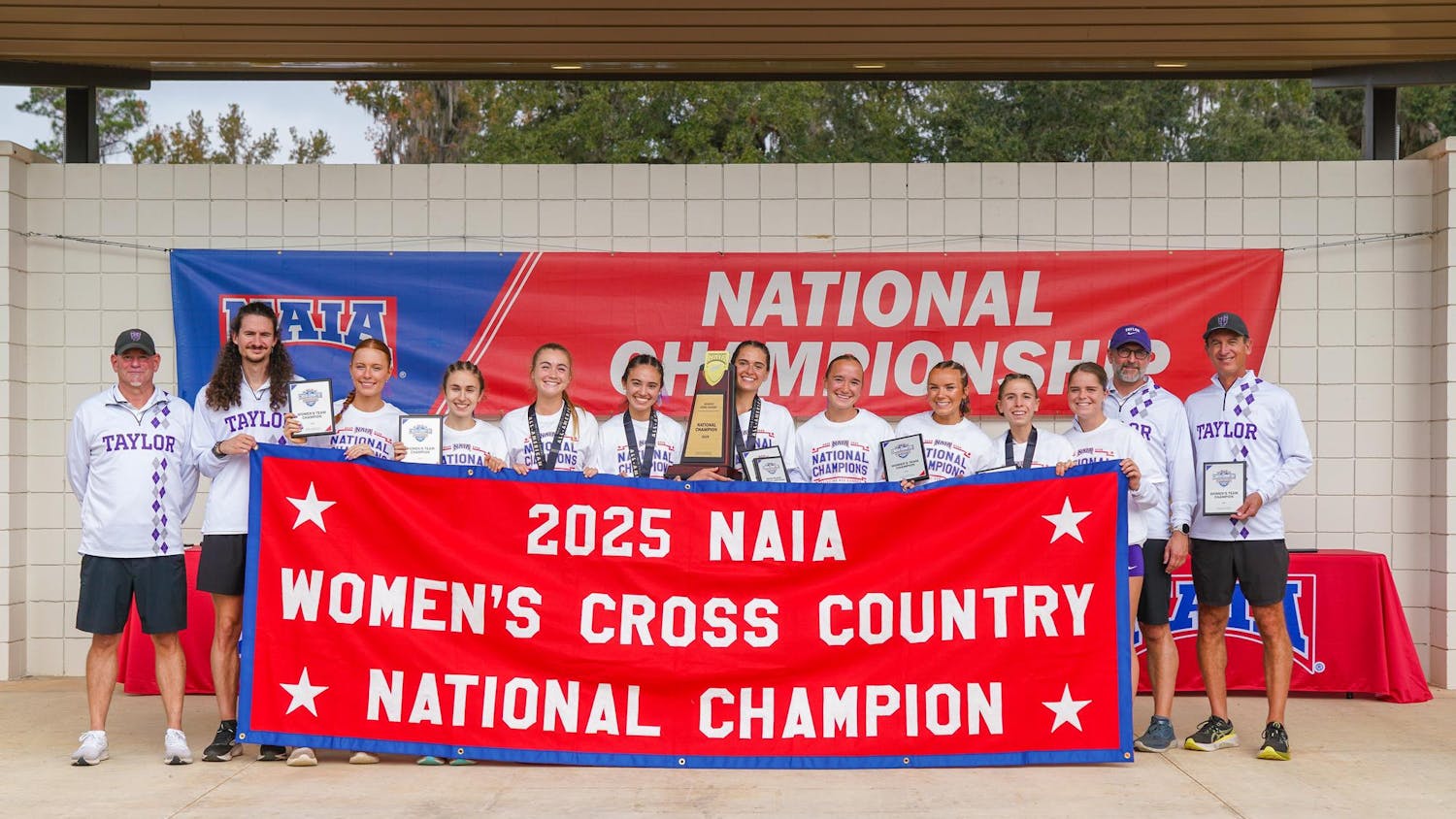By Emily Rachelle Russell | Echo
Starting today, women across the country - and Taylor's campus - will wear a dress every day for a month to raise money for sex trafficking victims through a movement called Dressember.
According to their website, Dressember started as a simple fashion challenge by blogger Blythe Hill in 2009 and grew to an international campaign to promote awareness of sex trafficking and raise funds to support organizations that rescue and rehabilitate victims.
The movement came to Taylor in December 2016 through then-freshman Madi Williams, now a sophomore. After doing Dressember for two years in high school, Williams knew she wanted to bring the challenge to campus. Her wingmates in English Hall's Cellar joined her, and the campaign spread through friends to other Taylor women.
"People are asking that question, 'What is the correlation between a dress and human trafficking?' and there really isn't one," Williams said. "The dress is just sort of the flag of the movement. It's a way to catch people's attention, it's a way to create conversations, and it's really just a way to show a daily act of how much you care."
Dressember founder Blythe Hill learned about human trafficking in 2005, but felt powerless to work against it as "just" a fashion expert and blogger. She started wearing a dress every day one December to change up her wardrobe, but as friends joined each year and the challenge grew, she realized it had potential to make an impact. In 2013, she paired the Dressember style challenge with the cause of ending human sex trafficking.
Women interested in participating in Dressember can register through the website and, if desired, choose a local team of women to participate with. The movement needs more than dress-wearers; every participant has a personal fundraising page on the Dressember website with individual goals. Friends, family members, classmates or coworkers who want to support the campaign can donate to an individual's or team's page through the end of January. Money raised goes to the International Justice Mission, an international Christian humans rights organization, and A21, an anti-trafficking nonprofit.
"When I wake up in the morning, I get to advocate for women through something I'm already doing, which is getting dressed," Williams said. "Last year, several of my friends wore their dresses over a pair of sweatpants (for finals week). You don't have to give up comfort for changing the world."
Taylor's team, run by Williams and "headquartered" in English Hall's Cellar, has a community dress closet of about 60 dresses loaned out for the month. Participants can borrow a dress from the closet to wear for a day and return it. The team's fundraising goal for 2017 is $6,300, the price of one human trafficking rescue operation. They raised over $5,000 last year.
Men who want to support the cause can participate as well by wearing a tie or bow tie every day for the month. Sophomore David Fletcher joined Williams last year and wore his only tie, a black and white plaid bow tie.
"I was really seeking out opportunities to grow my compassion for people that I . . . had no shared experience with," Fletcher said. "I knew almost nothing (about sex trafficking), so I wanted to participate . . . so that I could educate myself while also trying to be an advocate for people that are facing unjust circumstances."
Students interested in participating or donating can find Taylor's team page online. Sign ups remain open until Dec. 31; fundraising goes through the end of January.
Williams finds many people intimidated at the thought of wearing a dress every day, but she feels it's a simple, easy step to improve the plight of women around the world.
"Not only is it a great way to change the world, you get to look cute while doing it," Williams said.





